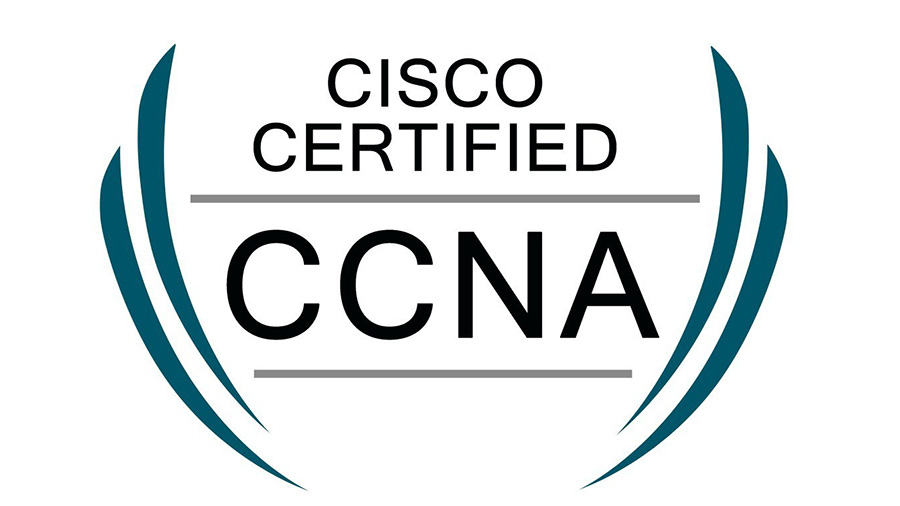10 Jobs That Need A CCNA Certification
In IT, Depending On Your Expertise, You Can Secure Your Company Against Security Threats, Run Computer Systems On An Organization’s Network, Or Manage A Team Of IT Professionals.
As an entry-level certification, the CCNA can prepare you for one of these careers in information technology. In this article, we’ll explain a CCNA certification, discuss its benefits, and provide a list of careers you can pursue after obtaining your CCNA certification.

What is a CCNA certification?
CCNA certificationCisco Certified Network Associate is one of the most popular certifications for IT professionals and the first Cisco certification. An entry-level certification, the CCNA prepares individuals for careers in information technology and builds a set of computer networking skills and knowledge, including installing, configuring, maintaining, and troubleshooting network equipment. CCNA allows engineers to understand how different networks communicate with each other to create a secure network.
They also learn how networks interact with different types of devices. After receiving this certification, they can establish switch-to-switch communications, configure routing on Cisco devices, configure a switch with switch-to-VLAN contacts, configure IP addresses, and learn the correct methods for connecting wide-area networks. (WAN) and so on.
Benefits of getting CCNA certification:
- Higher Salary: Typically, those with CCNA certification can earn higher salaries than IT professionals.
- Advanced knowledge: Earning a CCNA certification can significantly increase your understanding of computer networking, help you stand out with a stronger resume, and maintain your position in the industry.
- Better Chances of Advancement: Not only can a CCNA certification help you get hired in a new position, but it may also help you get promoted within your organization and advance in your position day by day.
Jobs in which you need to have CCNA certification
After obtaining your CCNA certification, there are several career positions that you can pursue. Below, we describe several popular job positions:
1. Technical support expert
The technical support specialist is responsible for helping customers and company employees solve computer device technical problems. They answer phone calls, participate in online chats with customers, or sit next to employees to explain how to operate their machines. Technical support experts also suggest solutions to solve problems or solve technical problems themselves.
2. Channel manager
A network administrator oversees a company’s networks. They troubleshoot existing problems, optimize the network, manage updates, and perform maintenance. These specialists also train employees to maintain and operate the network correctly. Network administrators also ensure that the organization’s networks are secure, assign permissions to employees, and recommend tools and software that can help support network performance.
3. Data center technician
A data center technician is responsible for maintaining an organization’s servers. They install and update these servers and fix problems that may arise over time. Their main job is to provide the necessary technical support by installing, configuring, and troubleshooting the system or network to ensure optimal operations in the data center. Datacenter technicians also document their work and keep event logs for later reference.
4. Information technology security specialist
An IT security specialist’s main task is to ensure that a company’s computer systems are safe from harm. They research and select appropriate and up-to-date protection tools that detect malware or provide protection against cybersecurity threats. Also, they may encrypt emails and other communications between company people and customers. IT security professionals upgrade systems, design firewalls, and restrict access to confidential information stored on computers, networks, and servers.
5. VoIP engineer
A VoIP engineer is responsible for installing and maintaining VoIP systems for an organization. They configure internal phone systems, secure hardware, and peripherals, and install the necessary software to support the organization’s needs. VoIP engineers also network the company’s phone systems, troubleshoot problems, manage user licenses, and provide training to users.
6. Information security analyst
The information security analyst ensures the information security of an organization. The task of an information security analyst is the security of data stored anywhere possible, even documents that are kept physically. They monitor systems, generate reports, install software to protect proprietary information and confidential customer data, and test how exposed the organization is to security threats. Information security analysts also establish security protocols within the company to ensure that employees work toward the organization’s security and avoid actions that could compromise information security.
7. Telecommunication engineer
A telecommunication engineer is responsible for connecting the communication systems of an organization. They work with video, data, and voice systems, among others, and perform tasks such as installing equipment, transferring data, reconfiguring networks and techniques, and installing equipment. These engineers also purchase new equipment or upgrade it as needed.
8. wireless engineer
A wireless engineer ensures internet connectivity in a particular area or an organization. A wireless engineer sets up, maintains, and updates wireless equipment, manages networks, troubleshoots Internet problems, manages firewalls and permissions, and tests networks and routers to ensure proper operation. And a wireless engineer’s primary duties include coordinating with customers to determine the type of network needed, the type of budget, and project-specific requirements or considerations, such as security features or geographic restrictions.
They then design the system, make adjustments based on customer feedback, and install it. Also, they should ensure they have installed all the software and hardware properly. After installing the network, they may be asked to train IT professionals or undertake system maintenance.
9. Network security engineer
The network security engineer is responsible for designing and managing the network security systems of a company or organization. It also optimizes these systems, trains users, reviews network protocols, upgrades the system to improve performance, and creates the necessary documentation for all users. A network security engineer must be able to protect the organization’s network from security threats such as malware and hacking attempts by malicious hackers. Therefore, network security engineers anticipate security threats and their impact and create systems that can counter them to keep networks secure. They may also manage a team of network security professionals.
10. IT Manager
The IT manager is responsible for overseeing the IT department of an organization. These professionals manage IT projects, oversee business activities, collaborate with other company professionals to develop solutions to existing problems, and research new technologies that the organization may benefit from in the future. IT managers often manage their department’s budget and report to senior management on how their team is doing.

